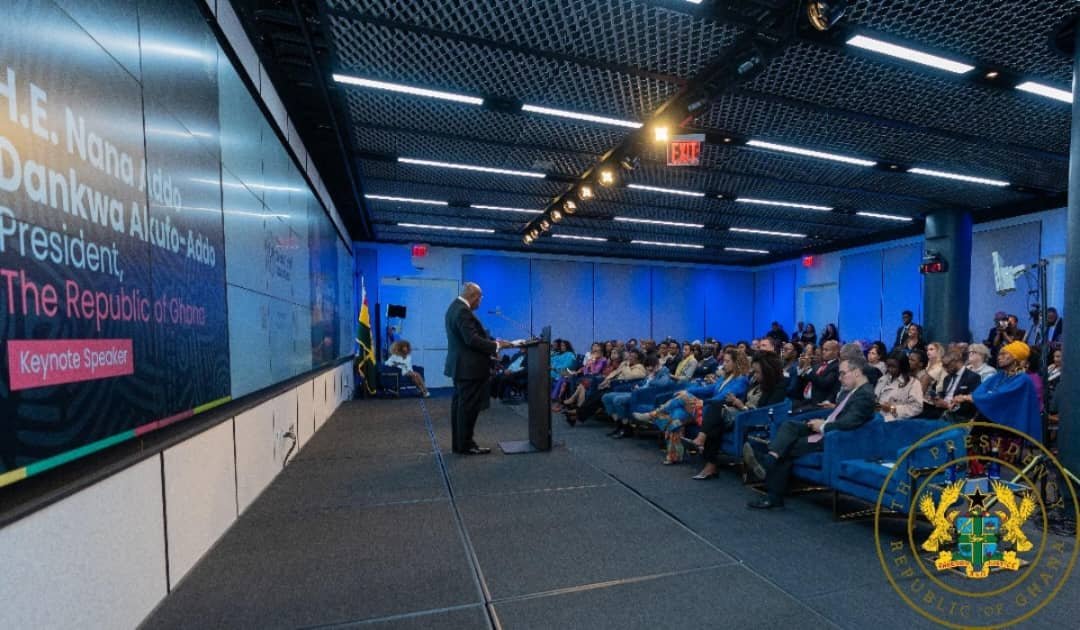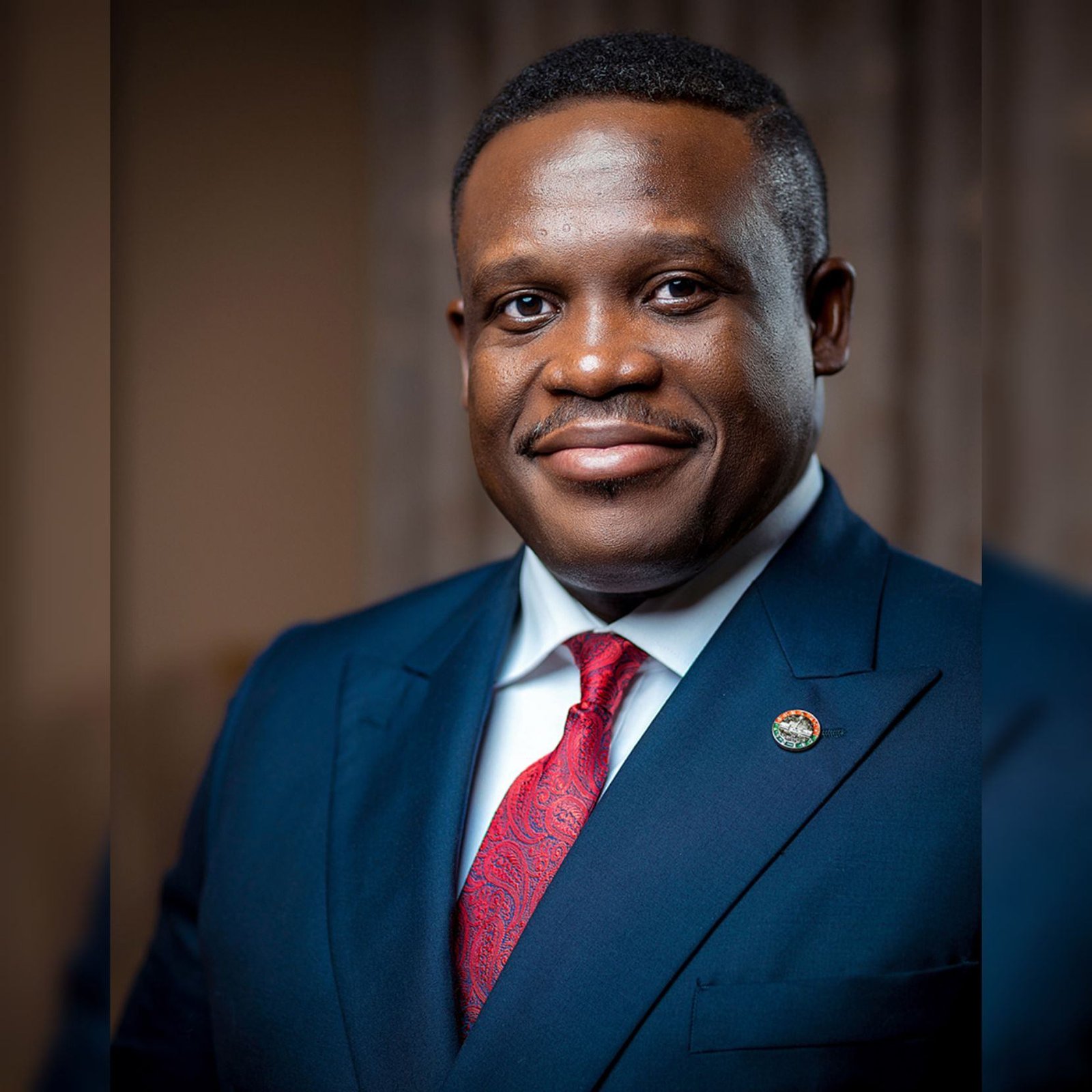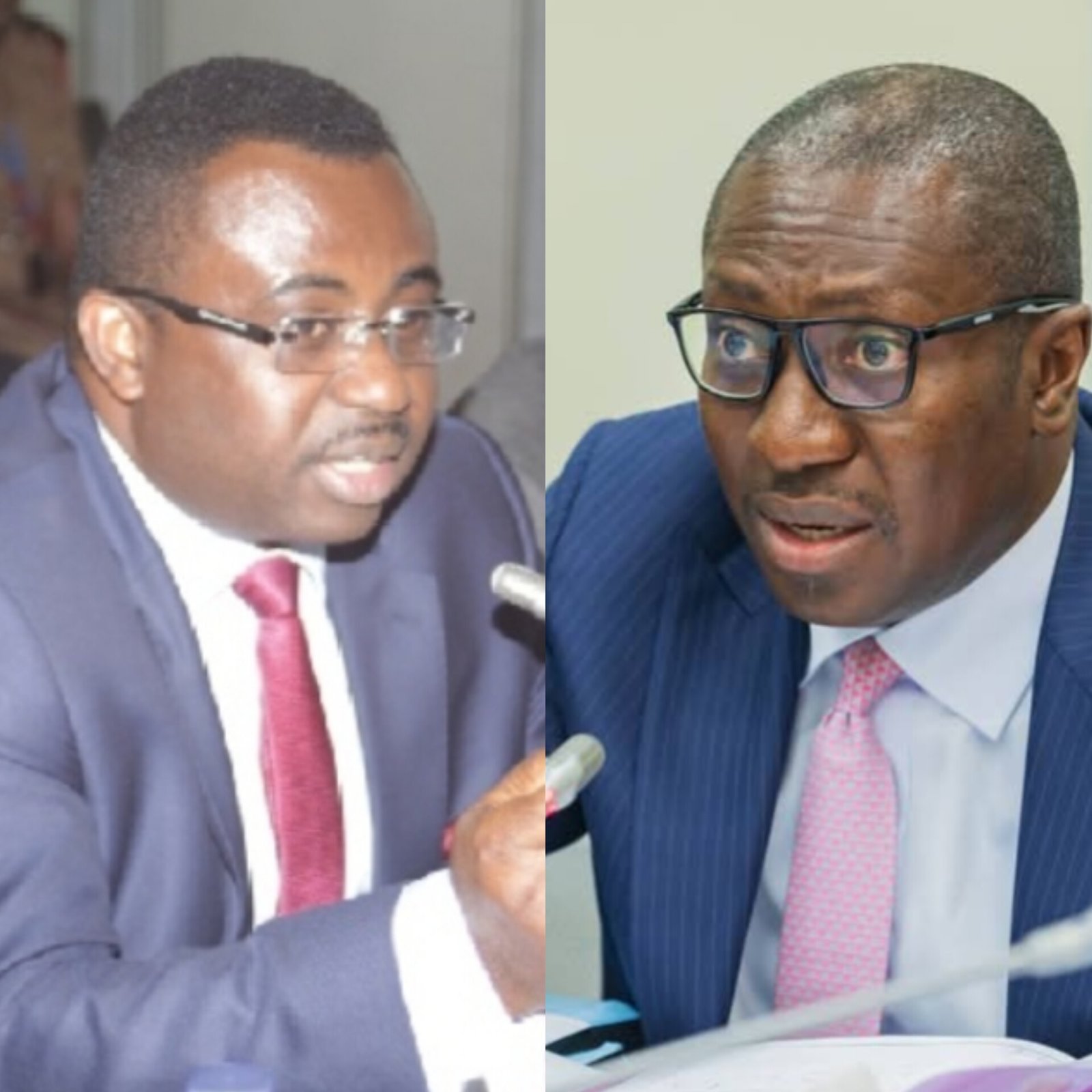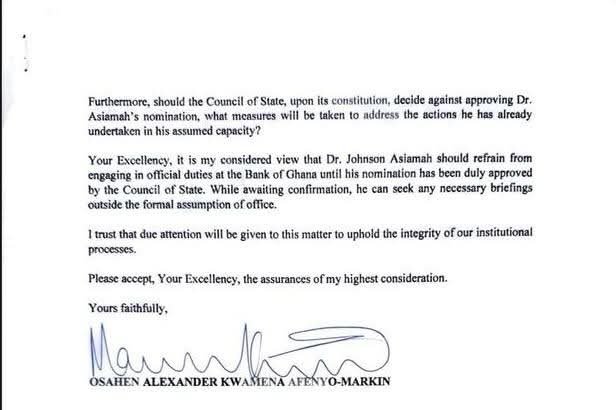News
Righting Historical Wrongs: President Akufo-Addo calls for Reparative Justice at UN Assembly”

At a significant side event during the 2024 UN General Assembly in New York, President Nana Addo Dankwa Akufo-Addo of Ghana delivered a compelling address on reparations, calling for a global reckoning with the historic injustices inflicted on people of African descent.
In his passionate speech, the President outlined the importance of reparative justice, while stressing that this moment in history is not merely about reflecting on past wrongs but about forging a path toward a just and equitable future.
“We are not convening this evening to share words, nor are we merely reflecting on history,” President Akufo-Addo began.
He said, “No, my friends, we are here to envision a new future—a future that corrects the injustices of the past and ensures that our children, and their children, are born into a world that embraces their dignity and humanity.”
In addressing the gathered dignitaries, diplomats, and representatives of African nations and the African diaspora, the President underscored the brutal legacy of slavery, colonialism, and systemic racism that continues to reverberate in the lives of people of African descent.
He emphasized that reparations are not just about compensation but about rebuilding the dignity and future of a people whose humanity was denied for centuries.
Akufo-Addo highlighted the historical examples of Haiti and the United States, where former enslaved peoples were further burdened instead of compensated.
He recounted the harrowing case of Haiti, a nation that was forced to pay reparations to France for the audacity of gaining its independence from colonial rule in 1804.
Haiti was shackled with an unjust debt of $21 billion that crippled its economy and prospects for generations.
“Haiti’s example illustrates a fundamental truth: reparations, when wrongly administered, do not serve justice. Rather, they can reinforce the very power structures that perpetuate dominion and inequality,” President Akufo-Addo asserted.
He added, “It was the enslaved who paid their former slave masters, a story that still resonates across the Global South.”
Akufo-Addo’s address also recounted the injustices perpetrated in the United States and the United Kingdom, where compensation for the abolition of slavery was perversely awarded to the slave masters, rather than to those who had endured years of forced labor and inhumane treatment.
In the United States, $300 was paid to slave owners for each enslaved person they lost, while the enslaved were left with nothing but their hard-won freedom. Similarly, in the UK, £20 million—a figure now equivalent to £20 billion—was paid to former slave owners, but not a penny was awarded to those who had suffered under slavery.
“This was a perverse inversion of justice, one that allowed the structures of inequality to endure long after the formal end of slavery,” Akufo-Addo said, noting the enduring economic disparities and systemic racism that continue to afflict people of African descent to this day.
“But, as Akufo-Addo reiterated, this event was not only about reflecting on these injustices. It was about taking active steps towards creating a future where reparations can be a meaningful part of healing and building sustainable livelihoods for those whose ancestors were wronged,” he said.
At the recent Reparations Conference in Accra, held in November 2023, the groundwork was laid for defining reparative justice for Africa and the African diaspora.
The President outlined several key actions agreed upon at the conference, including the establishment of a global reparations commission, the return of stolen cultural artifacts, and investments in African nations and communities worldwide.
“This is the vision of reparations that we must hold onto—one that looks not only at compensation for past injustices but also at the creation of sustainable, just futures for our people,” the President declared.
The concept of Afro-diplomacy was also central to the President’s speech. Akufo-Addo called on African nations and their diaspora to be the architects of their future, pushing for reparations through global diplomacy, partnerships, and solidarity with other oppressed peoples.
“Reparations will not be handed to us freely—we must actively seek them,” he said, urging the world to see Africans as equals on the global stage, not beggars.
Concluding his remarks, President Akufo-Addo expressed confidence in the youth of today, whom he believes will be the ones to transform global systems and build a future of justice, equality, and empowerment for all Africans.
“My friends, we stand at the threshold of a new world—a world that we must imagine, design, and build. This is the world of reparative futures, a world where the wrongs of the past are righted, and where African nations are free to define their own destinies,” he said.
As the address drew to a close, it was clear that President Akufo-Addo’s vision for reparations is about far more than financial compensation—it is about transforming the very foundations of global justice, ensuring that the descendants of the enslaved can thrive in a future where dignity, respect, and equality are their birthrights.
News
NPP is so hurt by my nomination – Sam George

The Minister for Communications, Digital Technology, and Innovation, and Member of Parliament(MP) for Ningo-Prampram, Samuel Nartey George, says opposition New Patriotic Party (NPP) Members of Parliament (MPs) are hurt by his nomination.
The minister who was approved by the majority in Parliament yesterday in a Facebook post stated that “It is clear to me that the NPP is so hurt by my nomination as Minister for Communications, Digital Technology, and Innovations and would stop at nothing to fight it.”
His post was in response to photos circulated on social media suggesting he was watching what appears to be nude content on his phone.
Mr. Sam George accused the NPP MPs of circulating fake photos with a false narration to tarnish his reputation, saying: “They have resorted to a smear campaign and cheap lies with fake photos.”
“After failing to mobilise their own Caucus in Parliament to vote against my nomination, they have resorted to smear campaign and cheap lies with fake photos,” he posted.
He concluded, “I can assure them that the days of misinformation and cheap fabricated lies are coming to an end. The Ministry would tighten regulations on such illegal conducts of misinformation and disinformation in the coming weeks and sanitise our media space.So help me God.”
By Edem Mensah-Tsotorme
News
New BoG governor can’t engage in official duties – Afenyo-Markin to Mahama

The Minority Leader, Alexander Afenyo Markin has raised concerns over the assumption of official duties by Dr. Johnson Asiamah as Governor of the Bank of Ghana (BoG).
The former Deputy Governor was recently nominated by President John Dramani, on January 31, 2025, to serve as Governor, pending approval by the Council of State.
This follows a formal request by the current Governor, Dr. Ernest Addison, to proceed on leave ahead of his retirement on March 31, 2025.
However, in a letter to President Mahama dated February 4, Minority Leader raised serious concerns with Dr. Asiamah’s assumption of office in the absence of the Council of State.
“Your Excellency, it is my considered view that Dr. Johnson Asiamah should refrain from engaging in official duties at the Bank of Ghana until his nomination has been duly approved by the Council of State. While awaiting confirmation, he can seek any necessary briefings outside the formal assumption of office,” the letter noted.
He added, “I trust that due attention will be given to this matter to uphold the integrity of our institutional processes.”
By Edem Mensah-Tsotorme
Read full statement below









